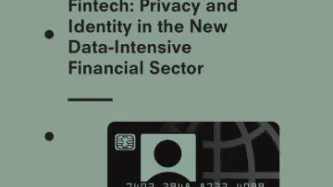Search
Content type: News & Analysis
The global counter-terrorism agenda is driven by a group of powerful governments and industry with a vested political and economic interest in pushing for security solutions that increasingly rely on surveillance technologies at the expenses of human rights.
To facilitate the adoption of these measures, a plethora of bodies, groups and networks of governments and other interested private stakeholders develop norms, standards and ‘good practices’ which often end up becoming hard national laws…
Content type: Examples
In January 2019 the UK Home Office announced it would collaborate with France to overhaul its regime for suspicious activity reports in order to fight money laundering. In 2018, the number of SARs filed with the National Crime Agency rose by 10% to nearly 464,000. Banks, financial services, lawyers, accountants, and estate agents are all obliged to file SARs if they suspect a person or organisation is involved in money laundering, terrorist finance, or other suspicious activity. The system has…
Content type: Examples
After four years of negotiation, in 2017 Google began paying Mastercard millions of dollars for access to the latter's piles of transaction data as part of its "Stores Sales Measurement" service. Google, which claimed to have access to 70% of US credit and debit cards through partners, said that double-blind encryption prevents both partners from seeing the other's users' personally identifiable information. Mastercard said the company shares transaction trends with merchants and their service…
Content type: Examples
In December 2018, a report, "Access to Cash", written by the former financial ombusdsman Natalie Ceeney and independent from but paid for by the cash machine network operator Link, warned that the UK was at risk of sleepwalking into a cashless society and needed to protect an estimated 8 million people (17% of the British population) who would become disadvantaged as a result. Although cash used halved between 2007 and 2017, and debit cards passed cash in share of retail transactions in 2017,…
Content type: Examples
After an 18-month investigation involving interviews with 160 life insurance companies, in January 2019 New York Financial Services, the state's top financial regulator, announced it would allow life insurers to use data from social media and other non-traditional sources to set premium rates for its customers. Insurers will be required to demonstrate that their use of the information doesn't unfairly discriminate against specific customers. New York is the first state to issue specific…
Content type: Examples
By 2017, facial recognition was developing quickly in China and was beginning to become embedded in payment and other systems. The Chinese startup Face++, valued at roughly $1 billion, supplies facial recognition software to Alipay, a mobile payment app used by more than 120 million people; the dominant Chinese ride-hailing service, Didi; and several other popular apps. The Chinese search engine Baidu is working with the government of popular tourist destination Wuzhen to enable visitors to…
Content type: Examples
In 2015, the Swedish startup hub Epicenter began offering employees microchip implants that unlock doors, operate printers, and pay for food and drink. By 2017, about 150 of the 2,000 workers employed by the hub's more than 100 companies had accepted the implants. Epicenter is just one of a number of companies experimenting with this technology, which relies on Near Field Communication (NFC). The chips are biologically safe, but pose security and privacy issues by making it possible to track…
Content type: Examples
The payday lender Wonga announced in April 2017 that a data breach at the company affected an estimated 270,000 customers, 245,000 of them in the UK and the rest in Poland. The company sent those it thought were affected messages warning that it believed there may have been illegal and unauthorised access to some of the data in their accounts. Wonga was already controversial because of the high rates of interest in charged, and findings by the UK's financial regulator that it had made loans to…
Content type: Examples
In 2017, a website run by the Jharkhand Directorate of Social Security leaked the personal details of over.1 million Aadhaar subscribers, most of them old age pensioners who had enabled automatic benefits payment into their bank accounts. Aadhaar is a 12-digit unique identification number issued to all Indian residents based on their biometric and demographic data. Both cyber security agencies and the Supreme Court have expressed concerns over its security,…
Content type: Report
Financial services are changing, with technology being a key driver. It is affecting the nature of financial services, from credit and lending through to insurance, and even the future of money itself.
The field of fintech is where the attention and investment is flowing. Within it, new sources of data are being used by existing institutions and new entrants. They are using new forms of data analysis.
These changes are significant to this sector and the lives of people it serves. This…
Content type: Case Study
Financial services are collecting and exploiting increasing amounts of data about our behaviour, interests, networks, and personalities to make financial judgements about us, like our creditworthiness.
Increasingly, financial services such as insurers, lenders, banks, and financial mobile app startups, are collecting and exploiting a broad breadth of data to make decisions about people. This is particularly affecting the poorest and most excluded in societies.
For example, the decisions…







